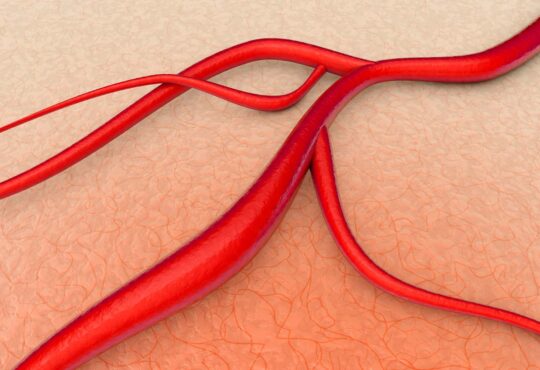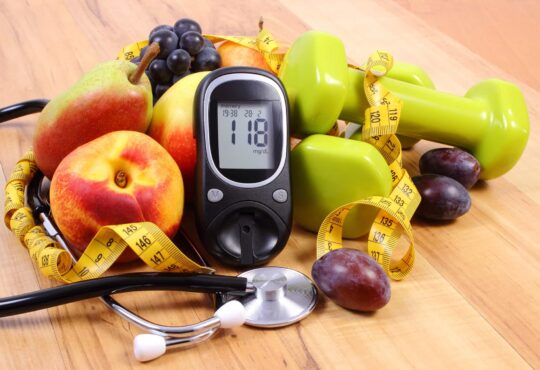
Don’t worry, be happy.
That’s the message modern culture sends us.
At the same time, we always seem to have more and more things to worry about – both in the world at large and in our personal lives.
Ideally, we’d all use common sense.
That is, we’d look into the future enough to anticipate potential problems, then take reasonable actions to prevent them.
This isn’t perfect, but nothing is. That’s part of the point.
We can’t control everything that might happen to us.
Therefore, we just have to do the best we can, and not think too much about negative things that *might* – but probably won’t – happen.
Except . . . some people just can’t stop there.
They suffer from an anxiety disorder. They experience panic attacks of uncontrolled fear even though they’re not in a threatening situation.
These attacks are extreme, intense, excessive, persistent – and unjustified.
Also, they’re clearly unproductive.
The fear of losing your job is reasonable. (Just ask the tens of thousands of tech workers recently laid off, including my niece after 17 years at Google.)
That’s a good thing because it can lead you to make sure you get to your workplace on time every day, keep your nose to the grindstone, please your boss, and so on. That reduces (though nothing can eliminate) your chance of actually losing your job.
But on-the-job anxiety attacks make it more difficult to perform well, especially with other people, and – therefore – make you more likely to be laid off or even fired.
6.8 million American adults suffer from some anxiety disorder.
In 2020, prescriptions for anti-anxiety medications went up 34%.
The US Preventative Services recommends all adults 64 years and younger be screened for anxiety.
What Causes Anxiety Disorder?
Modern medicine has no definitive answer. Obviously, it involves a strong emotional/psychological component with a physical one. Because those attacks raise blood pressure, elevate heart rate, speed up breathing and have other unhealthy effects on your body.
This is related to chronic stress as well. It could be that people with anxiety disorder have higher than average levels of cortisol, the stress hormone.
Fortunately, there are simple, natural ways scientifically proven to help manage stress and fear.
However, while improving your physical health can’t hurt, these ways don’t replace professional treatment.
See a Doctor
If you are ever overwhelmed by anxiety attacks, don’t ignore them.
See a doctor.
But also, don’t ignore these proven, healthy ways to increase your emotional well-being and happiness.
Eating More Fruits and Vegetables
Scientists did a study of over 12,000 Australians. They found a clear, direct relationship between the number of servings eaten daily of fruits and vegetables – and general life satisfaction.
The more servings of fruits and vegetables you eat, the happier you are.
The gain in satisfaction going from zero servings to eight per day was equal to the happiness measured in people who go from being unemployed to getting a job.
This study also showed the correlation between eating fruits and vegetables and emotional health applied to the future risk of depression and anxiety.
Two Asian Tree Barks that Reduce Cortisol Levels
Those are the Magnolia officinalis and the Phellodendron amurense. They’ve both been used for centuries to control the effects of stress on the body.
Researchers have been studying the beneficial effects of giving subjects a mix of these two barks.
A group of overweight premenopausal women, aged 20 to 50, were given 250 mg of an extract of both barks three times daily – for six weeks. All of the women had reported high levels of anxiety.
By the end of the six weeks, they reported significantly reduced levels of anxiety.
Exercise has many Psychological Health Benefits
Studies show exercise reduces symptoms of anxiety.
It accomplishes this in at least two ways:
1. It helps take your mind off your problems.
2. It releases endorphins that make you feel good.
They include your natural cannabinoids and other “feel-good” biochemicals.
Exercising for as little as 10-15 minutes at a time makes a difference in how you face the rest of the day.
30 minutes a day for three to five days per week is enough to significantly lower anxiety.
Forget the gym. Don’t delay exercise because you think you need fancy equipment, a workout plan, or a teacher in leotards.
To take a walk, you just need a sidewalk. A section of lawn to garden. A space on the floor to dance to your favorite music.
Or just enough open area to perform jumping jacks.
You need to move your body on a consistent, long-term basis.
Last, but not least, after eating 9 servings of fruits and vegetables, and exercising during the day, you need to sleep 7-9 hours every night.
According to a paper published in Nature Human Behavior, a sleepless night can raise your level of anxiety 30%.
Losing sleep deactivates your medial prefrontal cortex. That’s bad because that’s an area of your brain that reduces feelings of anxiety and overwhelm.
Getting a full night’s sleep, on the other hand, reduces anxiety.
Don’t Worry . . .
. . . Focus on what you can do today to solve your problems.
. . . Eat 9 servings of fruit and vegetables every day.
. . . Try a supplement of bark extract.
. . . Exercise at least 30 minutes three to five days per week.
. . . Enjoy a good night’s sleep . . .
And you’ll have a lot better chance of being happier.
If not, do see a doctor.
https://www.medicalnewstoday.com/articles/326926
https://www.mayoclinic.org/diseases-conditions/depression/in-depth/depression-and-exercise/art-20046495
https://www.lifeextension.com/protocols/emotional-health/anxiety
https://nutritionfacts.org/video/fruits-and-vegetables-put-to-the-test-for-boosting-mood/
https://www.mayoclinic.org/diseases-conditions/anxiety/symptoms-causes/syc-20350961
Tuck NJ, Farrow C, Thomas JM. Assessing the effects of vegetable consumption on the psychological health of healthy adults: a systematic review of prospective research. Am J Clin Nutr. 2019;110(1):196-211.
Holder MD. The Contribution of Food Consumption to Well-Being. Ann Nutr Metab. 2019;74(Suppl 2):44-51.
Mujcic R, Oswald AJ. Does eating fruit and vegetables also reduce the longitudinal risk of depression and anxiety? A commentary on ‘Lettuce be happy’. Soc Sci Med. 2019;222:346-8.
Mujcic R, J Oswald A. Evolution of Well-Being and Happiness After Increases in Consumption of Fruit and Vegetables. Am J Public Health. 2016;106(8):1504-10.
Ocean N, Howley P, Ensor J. Lettuce be happy: A longitudinal UK study on the relationship between fruit and vegetable consumption and well-being. Soc Sci Med. 2019;222:335-45.
Saghafian F, Malmir H, Saneei P, Milajerdi A, Larijani B, Esmaillzadeh A. Fruit and vegetable consumption and risk of depression: accumulative evidence from an updated systematic review and meta-analysis of epidemiological studies. Br J Nutr. 2018;119(10):1087-101.
Dreher ML. Whole Fruits and Fruit Fiber Emerging Health Effects. Nutrients. 2018;10(12):1833.
Conner TS, Brookie KL, Carr AC, Mainvil LA, Vissers MC. Let them eat fruit! The effect of fruit and vegetable consumption on psychological well-being in young adults: A randomized controlled trial. PLoS One. 2017;12(2):e0171206.
Smith AP, Rogers R. Positive effects of a healthy snack (fruit) versus an unhealthy snack (chocolate/crisps) on subjective reports of mental and physical health: a preliminary intervention study. Front Nutr. 2014;1:10.







